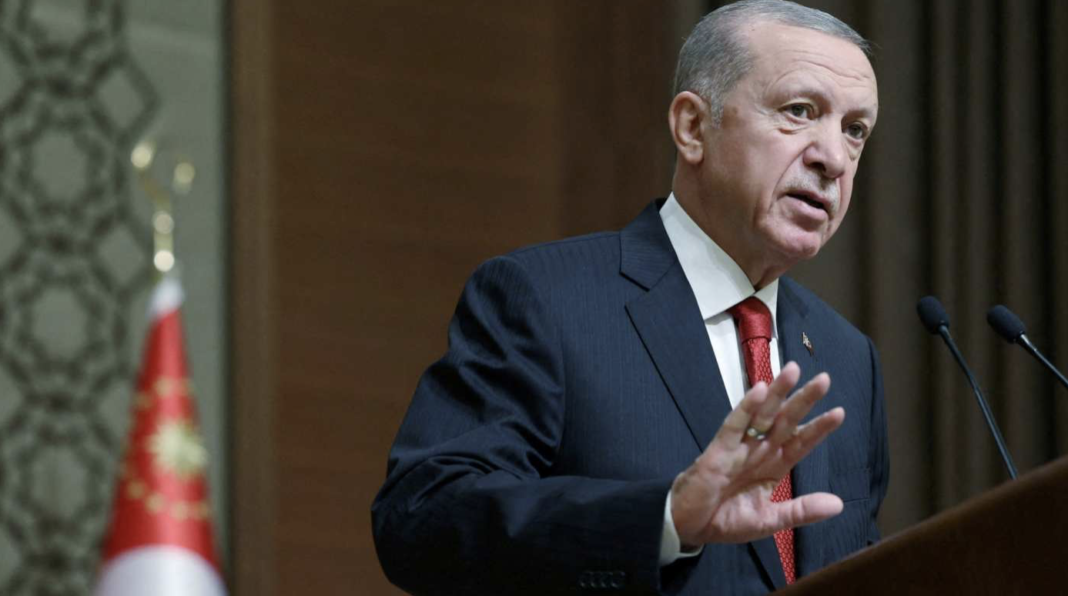As the 100th anniversary of the republic approaches, the west should take care not to assist in the burial of democracy.
Published on 18th of September, signed by Gönül Tol in Financial Times.
Since Turkey’s presidential election in May, western analysts have held out hope that Recep Tayyip Erdoğan will moderate his strongman style of rule. Feeding their optimism are several steps Erdoğan has taken, including appointing market-friendly technocrats to his economic team, replacing the hardline interior minister, dialling down anti-western rhetoric and voicing support for Sweden’s Nato membership. All these moves, however, are aimed at strengthening Erdoğan’s one-man rule, and the west is helping him.
Erdoğan’s cabinet reshuffle has brought in technocrats but also sidelined potential challengers — above all, Süleyman Soylu, a fiercely nationalistic, anti-western former interior minister once seen as the regime’s “second man”. After the election, Erdoğan moved him out and began to cleanse Turkey’s bureaucracy of Soylu loyalists.
Hulusi Akar, a former defence minister, was another potential successor. Chief of the general staff during the 2016 coup attempt against Erdoğan, Akar rose to prominence as defence minister after the failed putsch. But Akar’s fate was sealed by his growing popularity and his veiled criticism of Erdoğan’s decision not to deploy troops to areas hit by a devastating earthquake in February. Shortly after the election, he too was replaced by a low-profile figure. Erdoğan’s pick for defence minister and new appointments in the military high command suggest he is tightening his control over what was once Turkey’s most powerful institution.
Erdoğan’s efforts to suppress his opponents continue unabated. His most formidable political rival, rights activists and journalists remain in jail despite European Court of Human Rights rulings. After his election victory, a court began hearing a case against Ekrem İmamoğlu, Istanbul’s popular opposition mayor, on a tender-rigging charge. After being convicted last year of “insulting a public official”, İmamoğlu was in effect barred from running against Erdoğan in the May election. Now he faces a potential jail sentence and a political ban if found guilty.
As Erdoğan tightens his grip, the disparate opposition has imploded amid post-election infighting. Kemal Kılıçdaroğlu, who lost to Erdoğan in May, is resisting calls to resign as leader of the opposition Republican People’s party. Frustration is growing among opposition supporters about the prospects of reversing Turkey’s slide into authoritarianism.
Until now, most Turks believed that they could vote Erdoğan out. Fraud, civil liberties violations and abuse of state and media resources had made the regime authoritarian, but elections were not considered a facade and remained the route to power. However, Erdoğan’s recent steps and the opposition’s disarray are chipping away at that principle. Now only Turkey’s economic problems stand in the way of Erdoğan’s efforts to consolidate his autocracy.
His unorthodox policies have put the economy in a downward spiral. But instead of much-needed structural reforms, he is after a quick fix. To signal a change in course, he appointed Mehmet Simsek, a market-friendly former finance minister, to lead the economy. To some extent, Erdoğan’s moves seem to be paying off. Foreign investors are returning and the World Bank plans to double its exposure to Turkey to $35bn, which includes direct lending to the government. These funds are throwing Erdoğan a lifeline without meaningful reforms in return.
Those who care about democracy in Turkey should not be fooled by Erdoğan’s tactical moves. What may look like moderation is in fact the final stage in the consolidation of Erdoğan’s strongman rule. As the Turkish republic approaches its centennial next month, it is at a critical juncture in its meandering journey to western democracy. It would be a sad irony to see the west complicit in ensuring its autocracy.
Published on 18th of September, signed by Gönül Tol in Financial Times.
Gönül Tol is director of the Turkey programme at the Middle East Institute

